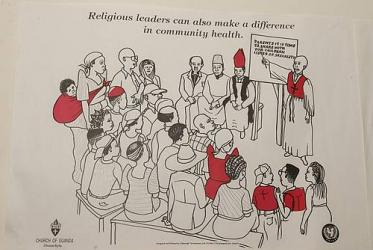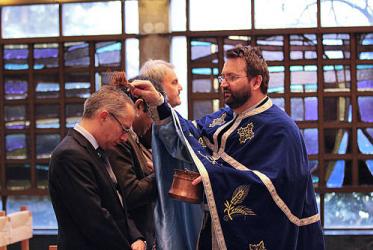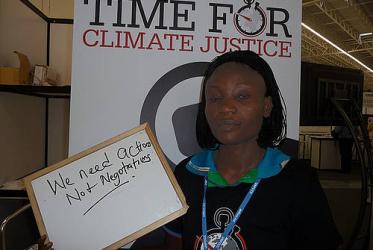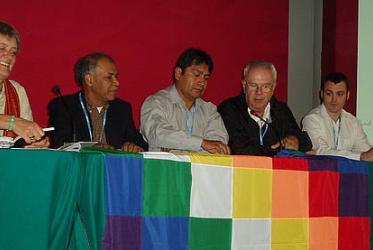Displaying 1021 - 1040 of 1125
Towards an eco-theology
30 March 2011
Lenten campaign focuses on water and just peace
03 March 2011
Books key to the battle against HIV and AIDS in Africa
23 February 2011
WCC calls governments for implementation of water as human right
22 February 2011
Blessing of the waters at the Ecumenical Centre
06 January 2011
Ecumenical water consultation sees hope for action in Asia
20 December 2010
Helping water flow freely in Asia
16 December 2010
Timid hope at end of climate negotiations in Cancun
13 December 2010
Climate talks must not fail again says WCC
10 December 2010
Faith communities stress moral dimension of climate change
09 December 2010
Marching for climate justice on the streets of Cancun
07 December 2010
“They have no wine”
30 November 2010
Church representatives in Cancun to call for moral decisions
24 November 2010
Churches want Europe to take lead on climate justice
17 November 2010














